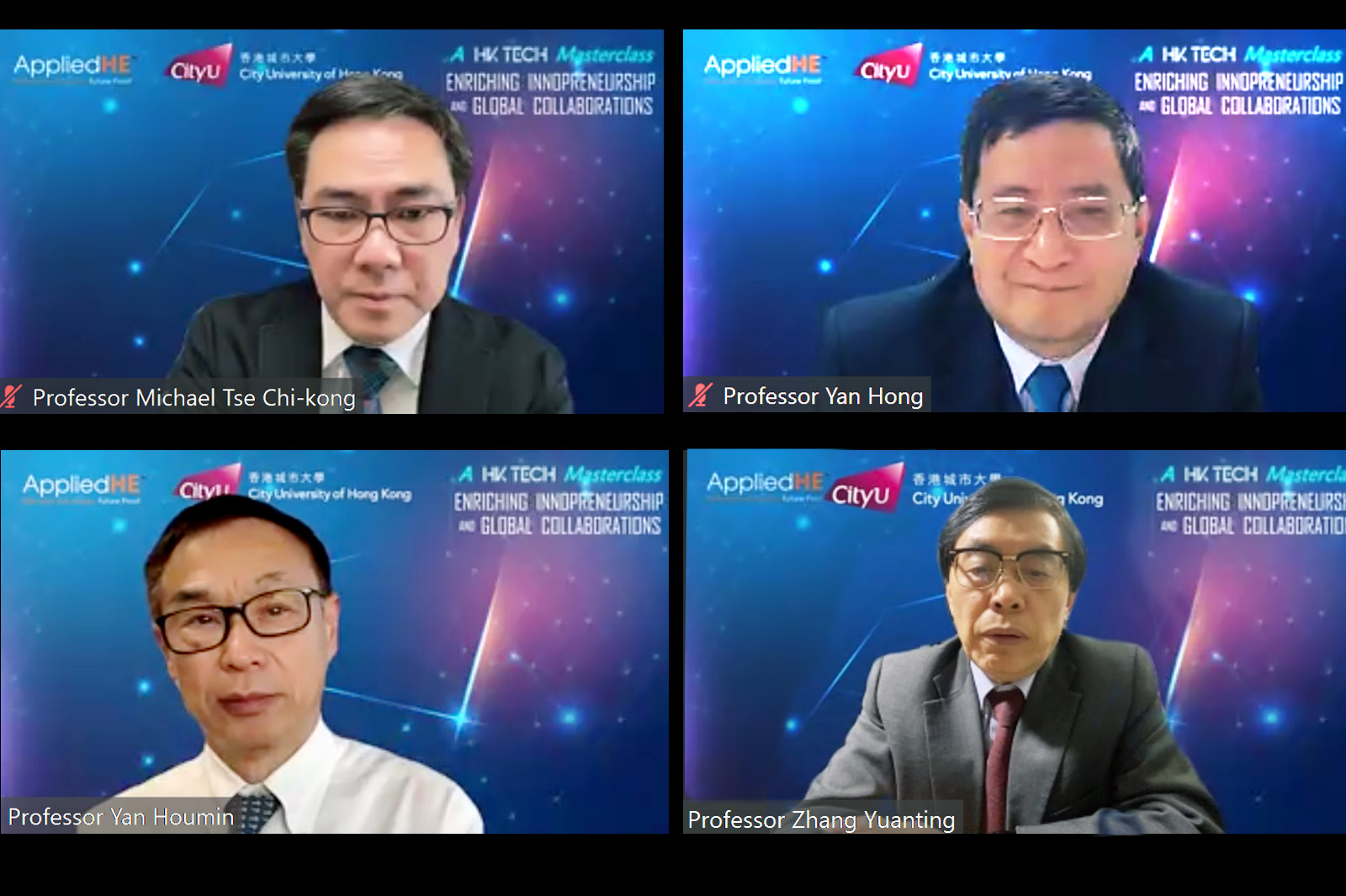
The second instalment of the HK Tech Masterclass by City University of Hong Kong (CityU) focused on recent perspectives on innovation and research aimed at benefiting the world.
Participants joined the online session, held on 25 February, from Hong Kong, the Asia Pacific region and Africa to find out more about CityU’s leadership in developing global scientific research cooperation.
Delivering the keynote address, Professor Michael Tse Chi-kong, Associate Vice-President (Strategic Research) at CityU, stressed that CityU was committed to stimulating new thinking on knowledge transfer and entrepreneurship, noting that there had been a paradigm shift in the development of business and commerce.
In particular, he said that the number of start-ups had doubled between 2015 to 2020 and that lots of young people were talking about establishing their own companies.
“We encourage our young graduates to pursue their dreams and support knowledge transfer by creating opportunities in establishing new start-ups and facilitating their development,” he said.
The three speakers introduced aspects of three new centres of excellence at CityU. These centres, although based in Hong Kong, exemplify cooperation with renowned overseas partners including University of Oxford, Karolinska Institutet, Columbia University, among others, to align with the theme of the Masterclass: “Enriching Innopreneurship and Global Collaborations”.
Professor Zhang Yuanting, Director of the Hong Kong Centre for Cerebro-Cardiovascular Health Engineering (COCHE), talked about the use of technologies to improve healthcare. His specific focus was developing new ways to treat cardiovascular disease, one of the world’s leading cause of death as well as the health industry’s most costly disease for treatment.
“Health Engineering is for early detection, prediction, diagnosis, prevention, treatment, and recovery, which needs the development of precision, personalised and pervasive instruments,” he said.
Professor Yan Houmin, Director, introduced the Laboratory for AI-Powered Financial Technologies (AIFT) and its mission to bring together talent for the development of tools and application of modern financial theories in the realms of AI and Big Data for a greater understanding of fintech.
“We see huge potential in supply chain finance,” said Professor Yan. “Transformative analytics solutions can accelerate the digital transformation for the financial industry by building a cross-border ecosystem of innovation and AI technology by leveraging complex, diversified and rich data from multiple-sources.”
Professor Yan Hong, Director of the Centre for Intelligent Multidimensional Data Analysis (CIMDA) and Wong Chun Hong Professor of Data Engineering, set out CIMDA’s vision to be “one of the best research centres in the world in the areas of data science and engineering and artificial intelligence” and its mission to “bring together top researchers from multi-disciplinary areas to develop innovative technologies benefiting industry and society”.
Through university–industry collaboration, CIMDA champions highly motivated multi-disciplinary teams, complementary expertise, strong math and computing foundations, and collaborative rather than isolated projects.
During the discussions, the key points made were that the centres acted and were structured more like start-ups than like traditional university research groups. Instead of focusing on publications and papers, the centres were more interested in establishing real connections with industry, according to Professor Tse.
In addition, the centres have to respond to developments in society. “You have to move quickly,” said Professor Yan Hong, because industry changes rapidly. To do so, you have to talk with industry partners, making both parties are working towards similar goals.
Professor Yan Houmin stressed the need for hiring people with strong industry experience, new talent for higher education institutions who spoke the language of industry and fully understood the models on which industry operated.
Professor Zhang reiterated this point, emphasising the importance of identifying needs and gaps, an approach that is vital for his area of speciality, health engineering.
“Our centres are very different to traditional universities. We have to think hard about what our partners around the world want, how they can benefit, so that our ideas align for a win-win for both sides,” said Professor Tse.
